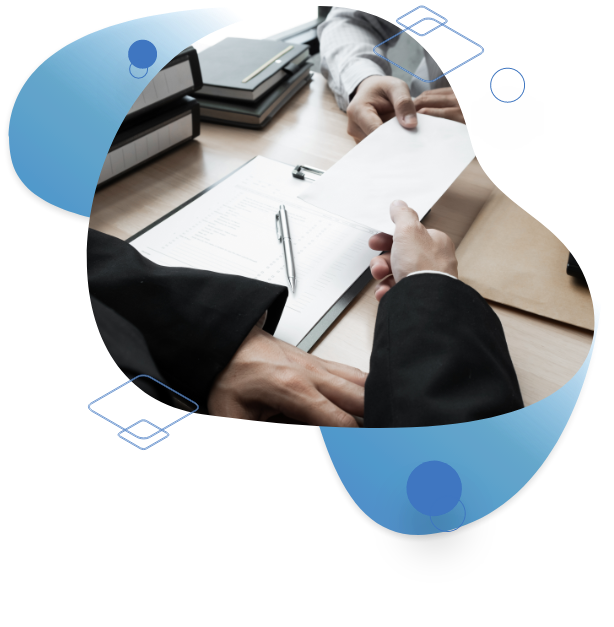
Your Chapter 13 FAQs Answered
Filing for Chapter 13 bankruptcy can feel overwhelming, but understanding the basics can make the process more manageable. Below, we answer some of the most frequently asked questions about Chapter 13 bankruptcy to help you make informed decisions about your financial future.
Considering Chapter 13 Bankruptcy?
Chapter 13 bankruptcy is a legal process that allows individuals to reorganize their debts and repay them over a set period. It’s a great option for those who have a steady income but need relief from excessive debt, like credit card bills, medical expenses, or missed mortgage payments. If you are facing foreclosure or repossession, Chapter 13 can help protect your property while you work to catch up on payments.
What is Chapter 13 Bankruptcy and How Does it Work?
Chapter 13 bankruptcy, often called a "wage earner's plan," enables individuals with regular income to restructure their debts. Instead of liquidating assets, debtors propose a repayment plan to pay off creditors over time, based on their disposable income. Once the plan is completed, remaining eligible debts may be discharged.
How Long Does Chapter 13 Take?
Typically, a Chapter 13 bankruptcy plan lasts between three to five years. The exact duration depends on your income level, the amount of debt you have, and the plan's terms. If you earn less than the median income for your state, your plan will likely last three years. If your income is above the median, you may have to make payments for five years. However, during this time, creditors cannot pursue legal action against you.
How Much Does Chapter 13 Cost?
The cost of Chapter 13 bankruptcy includes filing fees, attorney fees, and potentially trustee fees. In Springfield, the standard filing fee is $313. Attorney fees can vary, but many offer payment plans to help make legal services accessible. Discussing your financial situation with a bankruptcy attorney will help you understand the full cost upfront.
Can I File Chapter 13 with No Money Down?
Yes, in many cases, it is possible to file for Chapter 13 bankruptcy with no money down. Some bankruptcy attorneys offer payment plans where you can pay your attorney fees as part of your Chapter 13 repayment plan. Additionally, some courts may allow you to begin your repayment plan before paying the full amount upfront. Be sure to consult with our attorneys to explore all your options and determine if this is available for you.
Understanding Your Chapter 13 Plan
A Chapter 13 bankruptcy plan is a powerful tool for individuals seeking to manage their debts while retaining their property. Understanding how the plan works, what debts are included, and how payments are calculated is essential to making the most of this option.
What Debts Can Be Included in a Chapter 13 Plan?
Under a Chapter 13 plan, most types of debt can be included and reorganized for repayment.
These debts are categorized as follows:
Chapter 13 offers flexibility, but it’s important to note that some debts, like student loans or certain tax debts, may not be fully discharged.
How Much Will I Have to Pay Under My Chapter 13 Plan?
Your payments depend on your disposable income, non-exempt assets, and debts. Disposable income is what’s left after covering essential living expenses, and this determines your monthly payment. Priority debts like taxes and child support must be paid in full, while unsecured debts, such as credit cards, may only require partial repayment.
What Happens to My Property During Chapter 13?
Chapter 13 lets you keep your property while catching up on overdue payments. Missed mortgage or car payments can be included in your plan, helping you avoid foreclosure or repossession. Non-exempt assets can also be protected, though their value may impact payments to unsecured creditors. With a solid repayment plan, you can retain your assets and regain financial stability.
Life During and After Chapter 13
Navigating life during and after Chapter 13 bankruptcy comes with unique challenges and opportunities. Understanding how credit works, what happens after discharge, and the impact on your credit score can help you plan for a more secure financial future.
Can I Get Credit During Chapter 13?
Getting credit can be challenging but not impossible. You’ll typically need court approval and trustee consent for significant loans, such as financing a car or home. Smaller credit options, like secured credit cards, may be more accessible and can help you rebuild credit responsibly. Maintaining steady payments on your Chapter 13 plan demonstrates financial discipline, which lenders may view favorably.
What Happens When My Chapter 13 is Discharged?
Once you complete your repayment plan, the court will discharge eligible remaining debts, freeing you from most unsecured debt obligations. A discharge is a fresh start, allowing you to focus on financial goals like saving or building credit. However, certain debts, such as student loans or recent taxes, may not be discharged, so it’s essential to understand how your specific case applies.
How Does Chapter 13 Affect My Credit Score?
Filing for Chapter 13 will lower your credit score initially and remain on your credit report for seven years. However, successfully completing your repayment plan shows financial responsibility, which can gradually improve your score. Consistently paying bills, avoiding new debt, and using credit cautiously during and after bankruptcy are key steps toward rebuilding your credit.
Take the First Step Toward Financial Freedom
If debt has taken over your life and the constant stress feels unbearable, Debt Doctors of Missouri is here to help. Serving communities throughout Southwest Missouri, we specialize in guiding individuals, couples, and businesses toward a brighter financial future through bankruptcy solutions. With over 25 years of experience and 3,500 cases handled, we’ve helped clients erase millions in debt and regain control of their lives.
At Debt Doctors of Missouri, bankruptcy is all we do, and we approach every case with compassion and expertise. During your free consultation, you’ll meet directly with an experienced Springfield attorney—not a paralegal—to discuss your unique situation and explore your options. We understand that taking the first step can be hard, but it’s the smartest decision you can make to start your financial recovery.
Don’t let another day go by feeling overwhelmed by collections, wage garnishments, or mounting bills. Call us today at (417) 466-3328 to schedule your no-obligation consultation and take the first step toward lasting debt relief. Let us help you move forward with confidence, dignity, and peace of mind.
